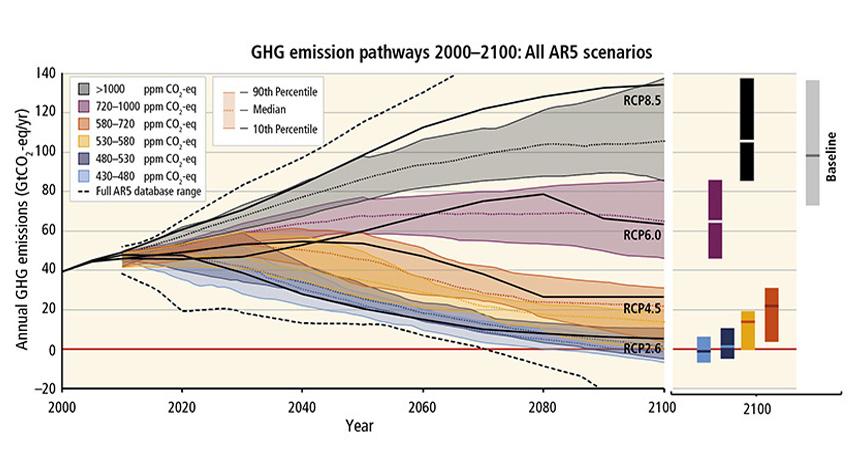A workshop was held during the 4C kick-off meeting to discuss the potential contributions of 4C to the Sixth Assessment Report of IPCC.
A workshop on the Sixth Assessment report of the Intergovernmental Panel on Climate Change (IPCC AR6) and the potential involvement of the 4C project in the report was held on June 12th, 2019 in Brussels, on the second day of the 4C kick-off meeting. The 3-day meeting opened with a summary of the four key objectives of the project, listed below, and the timeline, expectations and budget information were discussed.
-
Understanding the contemporary carbon cycle.
-
Predicting the carbon cycle and climate for the global stocktake to the horizon of 2030.
-
Projecting the required mitigation effort over the 21st century.
-
Synthesis, dissemination and policy dialogue.
The IPCC session focussed on work that 4C can undertake in support of the IPCC AR6 WG1 Chapter 5 objectives. Victor Brovkin (MPG; IPCC Chapter 5 lead author) provided an overview of the IPCC assessment report under preparation, with information on carbon-related sections. This session was attended virtually by Pep Canadell (IPCC AR6 Chapter 5, coordinating lead author), who presented the specific content of Chapter 5 on global carbon and other biogeochemical cycles and feedbacks. Peter Cox (UNEXE; IPCC Chapter 5, lead author) also attended the session virtually.
During the workshop, issues of integration of observations and models were highlighted, and the approach taken in 4C for the calculation of the global carbon budget was suggested as an example of integration. The high sensitivity of the CMIP6 generation of models, and the differences between the physical climate models and full ESMs were also discussed during the session.
The session highlighted the importance of the involvement of the 4C project in the next draft of AR6, while the release of the full report is expected in 2021.
Image from: IPCC AR5 Synthesis Report: Climate Change 2014, Figure 3.2.
Written by: Andria Nicodemou (BSC)

